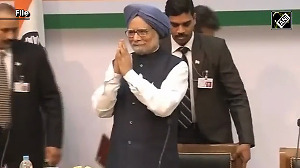Dutch media company VNU NV said Monday it will acquire US-based health care data provider IMS Health Inc. for around $7 billion in cash and stock.
The purchase, expected to close in the first quarter of next year, will be VNU's largest acquisition since buying the Nielsen television ratings provider in 2001. The joint company would have had an estimated revenue of $5.6 billion in 2004, VNU said.
VNU, based in Haarlem, will offer IMS shareholders $11.25 per share in cash and 0.6 share of VNU stock, a 16 per cent premium to IMS' average share price over the past 30 days.
As part of the deal, VNU said it will buy back up to $600 million worth of its own shares and borrow $3 billion from several financial institutions to complete the transaction.
"Together, we will be able to measure our clients' performance in three key sectors of the global economy -- consumer packaged goods, health care and media," said VNU Chief Executive Rob van den Bergh, who will be CEO of the combined company.
Connecticut-based IMS, which operates in the pharmaceutical and health care sector, sells clients information on how their products are used, and therefore matches the profile of other VNU units. The company earned $30.3 million on $411 million in sales in the first quarter, up 11 per cent from a year earlier.
VNU said the purchase will boost its cash earnings per share in the first year and annual earnings before interest, taxes and depreciation.
"The takeover of IMS is strategically wise and a good completion to VNU's current portfolio," SNS Securities analyst Reinier Westeneng told Dow Jones Newswires. Westeneng said profit growth prospects are good and he will maintain an "add" rating on the stock.
But VNU's shares fell 4 per cent to $26.76 in early European trading, with some analysts saying VNU may have overpaid for IMS and could struggle to achieve projected annual synergies of $132 million by 2008.
"IMS is already lean and mean," which makes VNU's synergy estimates "very ambitious," said Hans Slob, an analyst at Rabo Securities. The view was backed by analysts at Fortis bank, who said the deal seems too pricey and value destructive.






 © 2024 Rediff.com -
© 2024 Rediff.com -